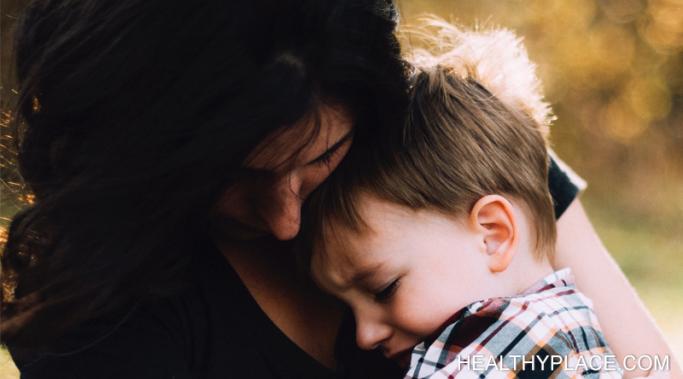Sometimes psychiatric symptoms can cause an encounter with the police. Sadly, these encounters don't always bode well for the person with a mental illness. More Than Borderline's Becky Oberg talks about how specialized training can save lives by teaching police officers how to deal with people in a psychiatric crisis.
More than Borderline
To say I was in a foul mood was an understatement. I'd been escorted by the police to the Midtown Community Mental Health Center's Crisis Invtervention Unit (CIU). I'd been waiting for a few hours to talk to a therapist, which is annoying even when psychiatric symptoms haven't flared up. But I was in for a surprise.
Recent events have left us, as a nation, shocked and disturbed. For me, the explosion in West, Texas hits closer to home than the bombing of the Boston Marathon since I used to live in nearby Waco. And the floods in the Midwest are literally a few miles from my apartment. Sometimes our emotions and mental health symptoms can get triggered by national tragedy. So how do we emotionally handle a disaster?
Recently I had a nightmare. I was in handcuffs and shackles, being transported by police to Richmond State Hospital in Richmond, Indiana, and determined not to go. I consider my time at Richmond State the worst four months of my life, and I don't want to go back. In the dream, I kicked the paddy wagon door--and in real life woke up when my foot connected with my window. Later that day, I wrote about it and realized the therapeutic power of writing.
I've often said that it would be interesting to do a study on psychosis among charismatic Christians or others who emphasize spiritual experiences in daily life. How many would be psychotic? And how do we know the difference between religious experiences and psychosis? How do we know the difference between a heavenly experience and the hell of mental illness? I once read a book that attempted to answer this question by saying that religious experiences are usually visual and pleasant.
Did you know that Miss Piggy can teach us a lot about anger? For the lesson, watch this video. Note Miss Piggy's hysterical but understandable overreactions, and ask what you can learn from them.
They say that music can soothe the savage beast. In this video, More Than Borderline's Becky Oberg explores music's therapeutic benefits and plays an original song on her Native American flute.
I once read a book by a homeless man, and he talked about the first thing his guru said to him: "Everything that happens to you is for your own good."
As a rape survivor, I argue with this, but it stood out to me. My version would be "Everything that happens to you is to teach you something." I recently learned a major fact about my BPD diagnosis from a woman at the bus stop.
Recently my benefits got cut and it's going to take at least another month to get it straightened out. To cope with the sudden reduction on the cash scene, I've been looking for a job with limited success. I've applied at two restaurants and been told to leave my name and number, which is the equivalent of the kiss of death. Fortunately, I have a lead on a job at an ice cream shop and it looks like I'll land the interview. Which leads me to one question--how open should I be about my borderline personality disorder diagnosis?
As I write this, my sobriety is shot to the Nether Regions. I'm once again fighting my battle against alcohol relapse and cravings. Which got me thinking, what do I wish people understood about addiction?







